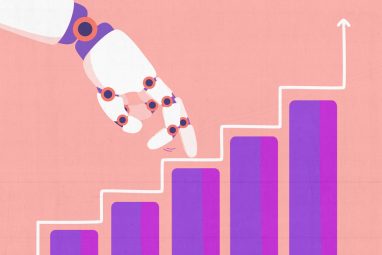Antitrust Watchdog Flags Algorithmic Collusion Risk, Urges Self-Audits
India’s competition watchdog warns that AI could enable tacit collusion, discriminatory pricing and lock-in, urging companies to run self-audits as the IndiaAI Mission and new antitrust tools work to widen access and curb abuse.
News
- Microsoft Rolls Out Maia 200 AI Chip to Cut Reliance on Nvidia
- Google.org Funds 12 AI Projects to Accelerate Scientific Research
- MIT Sloan Management Review India, IDfy to Release Study on Data Privacy
- India’s AI Summit to Draw World’s Top Tech Leaders This February
- Startups Seek Tax Clarity After SC Ruling Against Tiger Global
- Tata Vows $11 Billion for Innovation City Near Navi Mumbai Airport

More than a third of Indian AI startups believe AI could facilitate tacit or explicit collusion, 32% see a risk of price discrimination, and 22% point to predatory pricing, according to a Competition Commission of India (CCI) market study conducted by MDI Gurgaon.
The study draws on interviews and surveys with 106 stakeholders across startups, user industries and experts.
The antitrust regulator warned that rapid AI adoption raises familiar competition concerns, including collusion, discriminatory pricing, lock-in, and opacity, and asked companies to run regular self-audits of AI systems.
CCI said it will build technical capacity and coordinate internationally while pushing firms to document and test their algorithms for compliance.
The study said India’s AI market is small but expanding quickly, with estimates that it could reach about $31.94 billion by 2031, even as scale advantages accrue to incumbents globally.
Access remains the chokepoint. Smaller firms report barriers to high-quality data, scarce AI talent, and costly compute—inputs concentrated with well-funded players across the stack.
The report maps an “upstream” layer of data, infrastructure, and model development dominated by hyperscalers and chipmakers, and a “downstream” layer where Indian startups customize models for sectors.
Domestic startups are largely app-focused and open-source heavy. About 67% build domain-specific applications rather than core infrastructure; 76% rely on open-source tools.
By technology, 88% use machine learning, 78% use natural-language processing, 66% use generative AI or large language models, and 27% work with computer vision.
On the user side, 90% of surveyed firms say they deploy AI to monitor customer behavior; 69% use it for demand forecasting and 27% for supply-chain efficiency.
The CCI frames pricing risks in practical terms. Algorithmic systems, including monitoring, parallel, signaling, and self-learning, can steer markets toward supra-competitive prices without explicit agreements, making tacit coordination harder to detect.
The report also flagged exclusionary conduct via exclusive partnerships and ecosystem lock-ins that restrict switching.
Policy signals are moving in parallel. The government’s IndiaAI Mission carries a ₹10,300 crore outlay to expand compute access and support startups, which the study cites as a lever to level the field.
The CCI also pointed to the Competition (Amendment) Act, 2023, which adds deal-value thresholds and stronger tools against hub-and-spoke cartels, and said it will convene a conference on AI and regulatory issues, run competition-compliance workshops, build internal technical capacity, create a digital-markets think tank with an AI focus and deepen coordination with foreign authorities.





